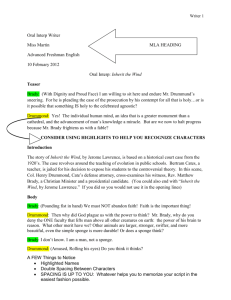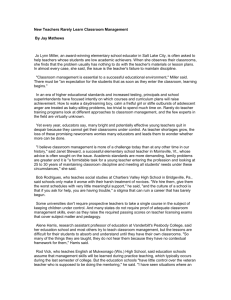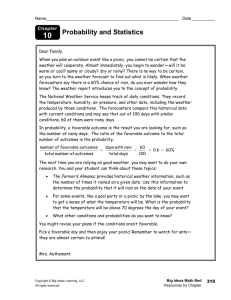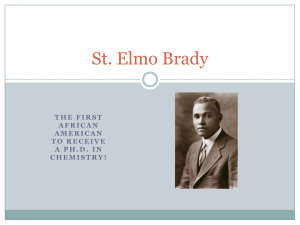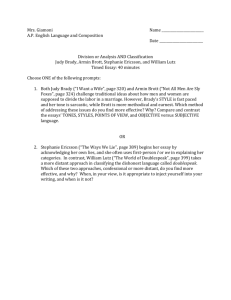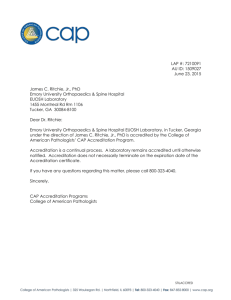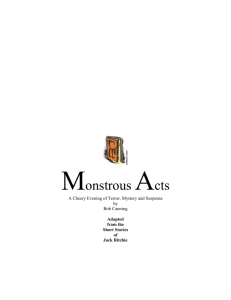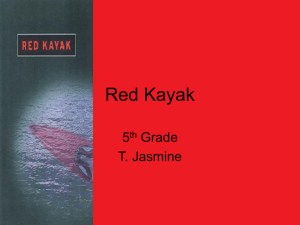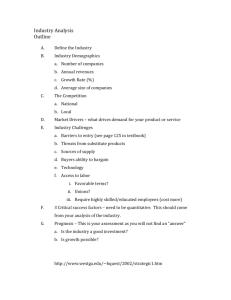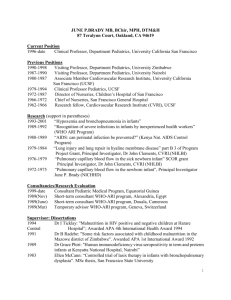Brady Duty memo
advertisement
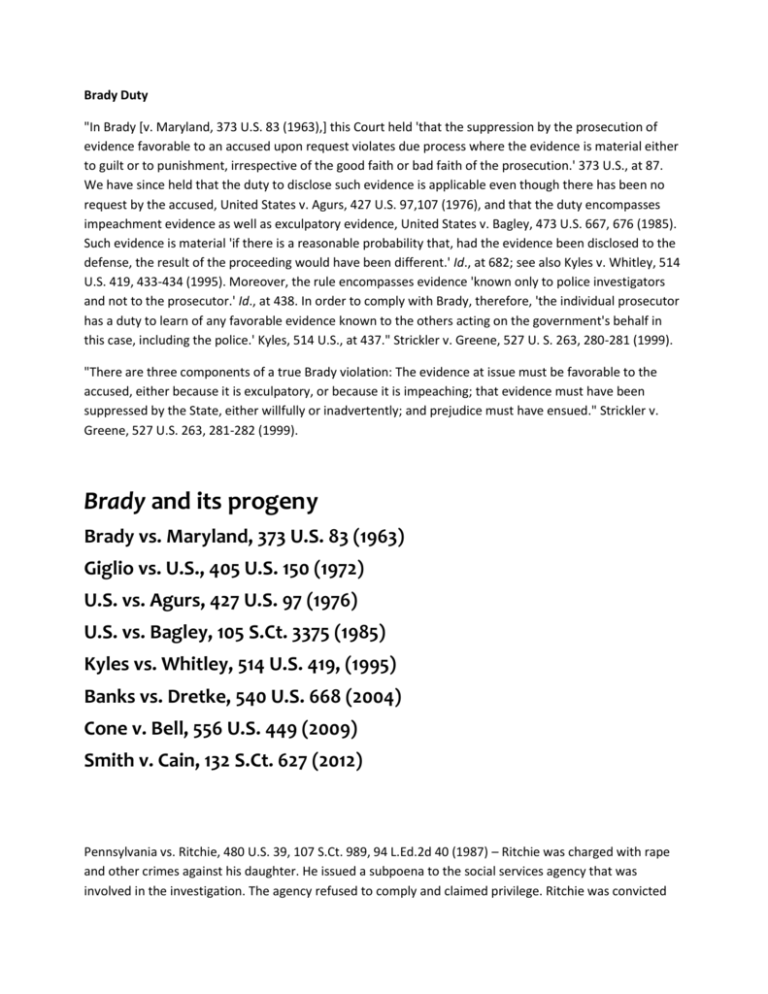
Brady Duty "In Brady [v. Maryland, 373 U.S. 83 (1963),] this Court held 'that the suppression by the prosecution of evidence favorable to an accused upon request violates due process where the evidence is material either to guilt or to punishment, irrespective of the good faith or bad faith of the prosecution.' 373 U.S., at 87. We have since held that the duty to disclose such evidence is applicable even though there has been no request by the accused, United States v. Agurs, 427 U.S. 97,107 (1976), and that the duty encompasses impeachment evidence as well as exculpatory evidence, United States v. Bagley, 473 U.S. 667, 676 (1985). Such evidence is material 'if there is a reasonable probability that, had the evidence been disclosed to the defense, the result of the proceeding would have been different.' Id., at 682; see also Kyles v. Whitley, 514 U.S. 419, 433-434 (1995). Moreover, the rule encompasses evidence 'known only to police investigators and not to the prosecutor.' Id., at 438. In order to comply with Brady, therefore, 'the individual prosecutor has a duty to learn of any favorable evidence known to the others acting on the government's behalf in this case, including the police.' Kyles, 514 U.S., at 437." Strickler v. Greene, 527 U. S. 263, 280-281 (1999). "There are three components of a true Brady violation: The evidence at issue must be favorable to the accused, either because it is exculpatory, or because it is impeaching; that evidence must have been suppressed by the State, either willfully or inadvertently; and prejudice must have ensued." Strickler v. Greene, 527 U.S. 263, 281-282 (1999). Brady and its progeny Brady vs. Maryland, 373 U.S. 83 (1963) Giglio vs. U.S., 405 U.S. 150 (1972) U.S. vs. Agurs, 427 U.S. 97 (1976) U.S. vs. Bagley, 105 S.Ct. 3375 (1985) Kyles vs. Whitley, 514 U.S. 419, (1995) Banks vs. Dretke, 540 U.S. 668 (2004) Cone v. Bell, 556 U.S. 449 (2009) Smith v. Cain, 132 S.Ct. 627 (2012) Pennsylvania vs. Ritchie, 480 U.S. 39, 107 S.Ct. 989, 94 L.Ed.2d 40 (1987) – Ritchie was charged with rape and other crimes against his daughter. He issued a subpoena to the social services agency that was involved in the investigation. The agency refused to comply and claimed privilege. Ritchie was convicted and appealed. The SCOTUS said Ritchie had a due process right to have the trial court review the file in camera and disclose favorable evidence to him. Pennsylvania vs. Ritchie, 480 U.S. 39, 107 S.Ct. 989, 94 L.Ed.2d 40 (1987) – SCOTUS noted that the “public interest in protecting this type of sensitive information is strong,” but the “interest prevents disclosure in all circumstances.” First SCOTUS case addressing constitutional issue of obtaining information from a third party. PA vs. Ritchie was decided on due process grounds – an offshoot of the right to favorable and material evidence in the hands of the prosecution. Must have “some plausible showing of how” the evidence is “both material and favorable to the defense.” (See also Love v. Johnson, 57 F.3d 1305 (4th Cir. 1995). Focus on “plausible”. Define “plausible”: credible, believable. Synonym: “reasonable” (i.e, “reasonable suspicion”) – use case law where defendants have been screwed on suppressing evidence from stops and searches because of “reasonable suspicion” then draw the analogy. “Your Honor, there is a reasonable suspicion that the files of the agency contain exculpatory information. “

